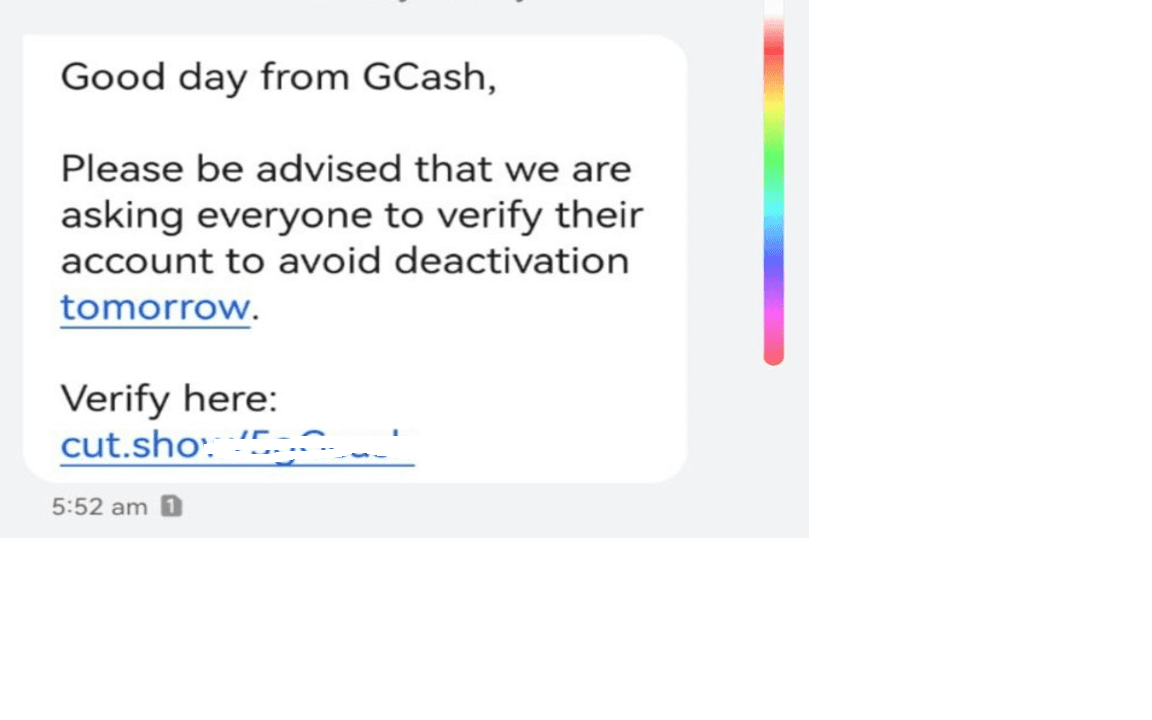CICC warns public about new GCash message scam targeting users through Viber and Facebook Messenger
Scammers shift tactics to evade SIM Registration Act, exploiting social media platforms to phish GCash account details
At A Glance
- The CICC has warned the public about a new email scam targeting GCash users through Viber and Facebook Messenger.
- Scammers are sending fraudulent messages that request users to verify their accounts via a provided link.
- This shift to social media platforms is a tactic to bypass SMS restrictions enforced by the SIM Registration Act.
- The number of scam text messages has significantly declined since the Act's implementation.
- CICC advises the public to avoid clicking on links from unknown or suspicious senders.

The Cybercrime Investigation and Coordinating Center (CICC) has issued a warning to the public about a new email scam allegedly from GCash, the country’s largest mobile payment service. According to CICC Executive Director Alexander K. Ramos, scammers have started sending fraudulent messages through platforms like Viber and Facebook Messenger instead of the usual SMS messages.
The deceptive email reads: “Good day from GCash, we would like to inform you that your account is under review. We request you to verify your account to continually access our eWallet services.” It includes a link where customers are asked to provide personal and account details.
“We always advise the public to avoid clicking any links from unknown or suspicious senders,” Ramos emphasized. “Scammers used to send such links through SMS but now they have found another platform.”
Ramos noted that the number of scam text messages has significantly declined since the implementation of the SIM Registration Act (Republic Act No. 11934) on December 27, 2022. “The scammers are bypassing our SMS systems by using emails as senders or via social media like Viber and Facebook Messenger,” he added.
In 2023, GCash blocked 4 million accounts, took down 810 phishing sites, and removed 45,000 malicious social media posts. GCash, a Filipino mobile payments service owned and operated by Globe Fintech Innovations, Inc., boasts 94 million users, with around 6 million merchant sellers and 935,000 small-scale community merchants on board the platform.
Jocel De Guzman, co-lead convenor of Scam Watch Pilipinas, said that there are five ways to protect yourself from online scams and phishing emails:
1. Verify the Source: Always check the sender’s email address and look for signs that the email is legitimate. Official emails from companies typically come from their official domain.
2. Avoid Clicking on Links: Do not click on links in unsolicited emails or messages. Instead, go directly to the official website by typing the URL in your browser.
3. Do Not Share Personal Information: Never provide personal or account details through email or messages from unknown or unverified sources.
4. Report Suspicious Activity: If you receive a suspicious email or message, report it to the company or service being impersonated and to the relevant authorities.
5. Use Security Software: Keep your computer and mobile devices secure by using up-to-date security software.
Victims of online scams are encouraged to call 1326, the hotline of the Inter-Agency Response Center (IARC).